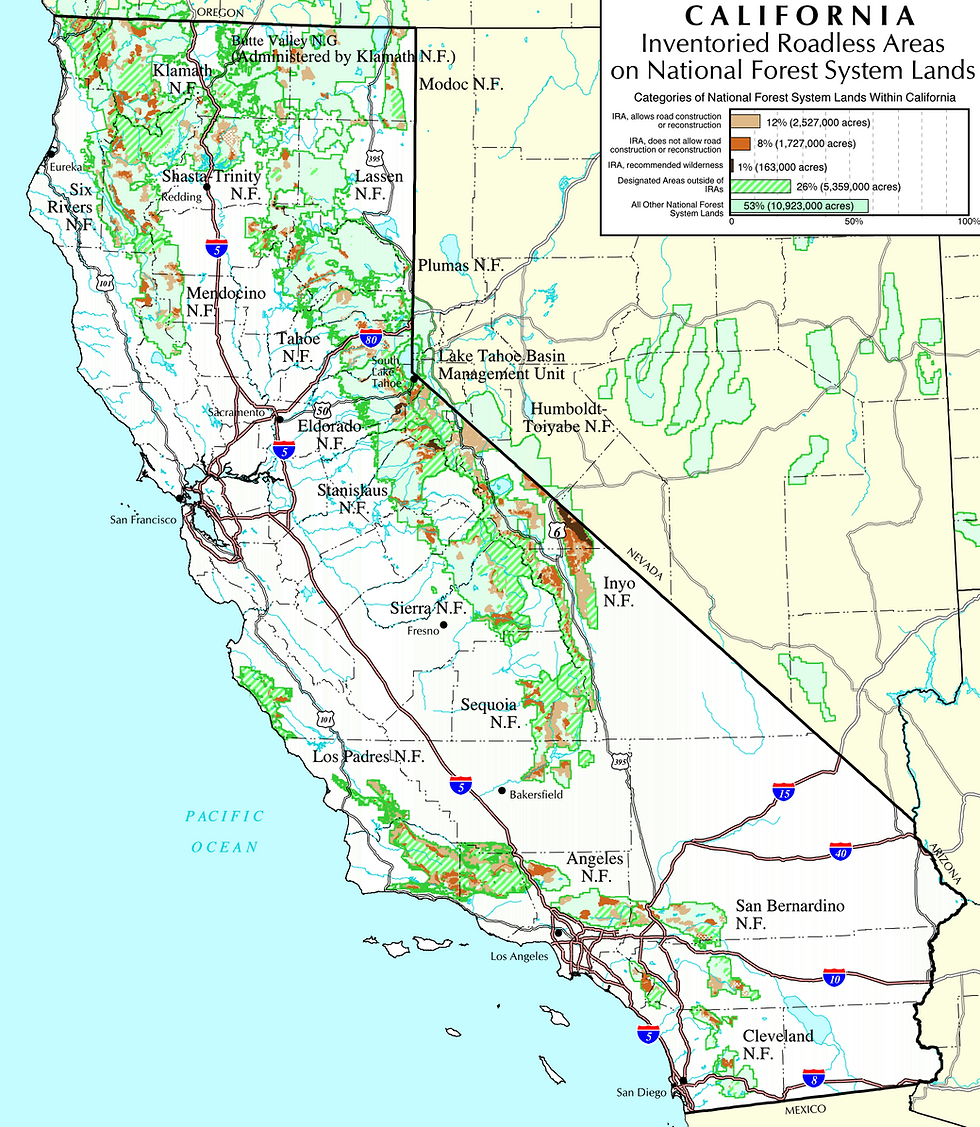EPIC Forces Timber Giant to Defer Logging that Threatens Owls
- May 10, 2011
- 2 min read
EPIC comments on Timber Harvest Plan 2-10-044SIS “China Cable” have forced Fruit Growers Supply Company, a major private timberland owner in Siskiyou County, to substantially modify proposed logging that would harm Northern Spotted Owls.
The “China Cable” THP covers a total of 303 acres, including 255 acres of clearcutting in the Soda Springs region of Siskiyou County. There are three documented Northern Spotted Owl home ranges or “activity centers” within 1.3 miles of proposed logging activities.
The “China Cable” THP proposed to target nesting and roosting habitat for owls within close proximity to an owl home range. The home range in question is already deficient in high quality habitat for owls, including a deficiency in nesting and roosting habitat. Logging of suitable nesting and roosting habitat within close proximity of the nest site not only threatens to result in harm to resident owls, but also threatens to impair migration of juvenile owls from the nest site.
On February 22, 2011, EPIC submitted comments to Cal Fire regarding the “China Cable” THP. We argued that logging as proposed under “China Cable” would likely result in harm to owls, and that the THP itself failed to demonstrate how harm to owls would be avoided.
Recently, Cal Fire informed Fruit Growers Supply Company that the “China Cable” THP was not adequate to avoid harm to owls and required the timber giant to make substantial changes to the plan, as well as provide an analysis demonstrating how the plan would avoid harm to owls.
Fruit Grower’s Supply Company responded by moving all logging outside of the 1,000 foot radius of NSO home ranges, and the company also agreed not to log any nesting and roosting habitat for owls within 0.5 miles of any home range until the owl home range in question is deemed by the US Fish and Wildlife Service to no longer support owls. These substantial changes will likely result in the recirculation (reopening of public comment) of this THP.
Cal Fire has demonstrated a pattern-in-practice of failing to address logging that would harm owls unless we raise concerns. This represents a fundamental flaw in the interagency review team process that is supposed to assure that no harm comes to owls as a result of logging operations approved by Cal Fire. Cal Fire consistently recommends THPs that would harm owls for approval, only to back track later as a result of our comments and the threat of litigation. EPIC will continue to serve as a watch-dog organization, and will continue to push back against industry proposals that would harm owls, as well as pushing back on Cal Fire’s inadequate owl protection regulatory system.





Comments